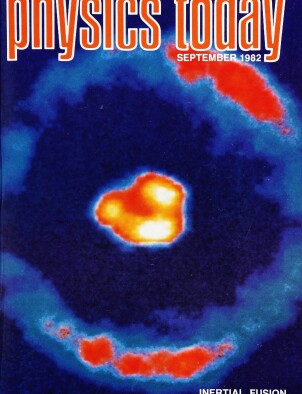High‐energy electrons to probe nuclei
DOI: 10.1063/1.2915256
Quantum chromodynamics, the gauge field theory that describes strongly interacting particles in terms of their quark constituents and the “colored” gluons that bind them, promises us a definitive theory of the nuclear force. QCD has evolved in the past few years primarily through the rich theoretical and experimental progress of elementary‐particle physics at very high energies. Now the nuclear‐physics community, whose traditional experimental realm has largely been confined to much lower collision energies, has begun looking to QCD and multi‐GeV electron accelerators to provide for the first time an adequate basis for understanding the short‐range behavior of nuclear phenomena.
This article is only available in PDF format




